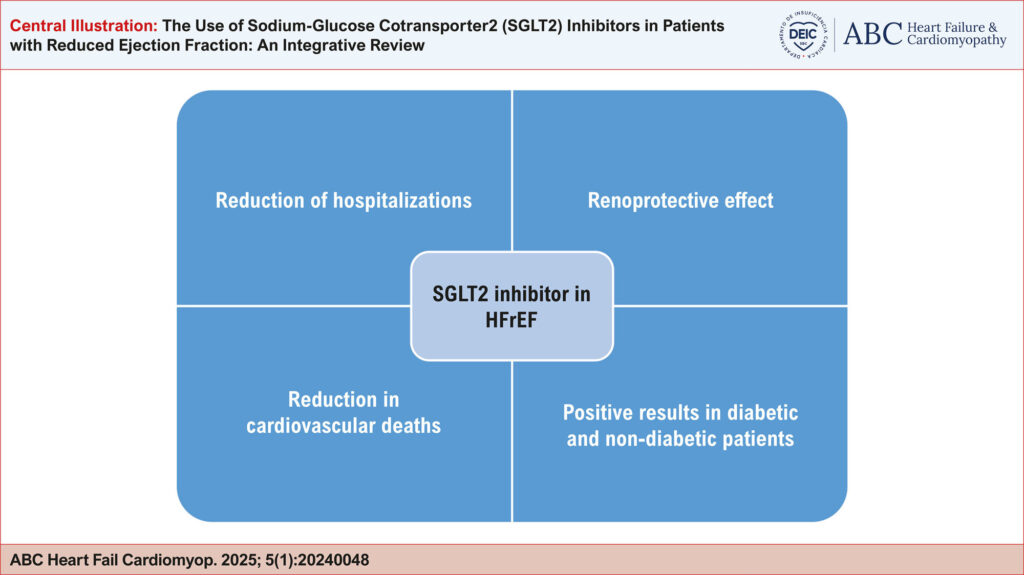ABC Heart Fail Cardiomyop 2025; 5(1): 20240048
The Use of Sodium-Glucose Cotransporter2 (SGLT2) Inhibitors in Patients with Reduced Ejection Fraction: An Integrative Review
Abstract
Heart failure (HF) is characterized as a clinical syndrome comprised of different etiologies. HF can be classified according to the left ventricular ejection fraction (LVEF) in heart failure with preserved ejection fraction (HFpEF) and heart failure with reduced ejection fraction (HFrEF). Studies have shown that sodium-glucose cotransporter2 (SGLT2) inhibitors can collaborate in the treatment of HF. To conduct a bibliographic survey in the form of an integrative qualitative review on the use of SGLT2 inhibitors in the treatment of heart failure. This study was carried out through the elaboration of an integrative literature review. Articles published in the last five years were selected from the PubMed, SciELO, LILACS, and Cochrane Library databases, using the following descriptors: “Diabetes Mellitus”, “Heart Failure”, “Heart Failure with Reduced Ejection Fraction” and “Sodium-Glucose Transporter 2 Inhibitors” A total of 1,504 articles, published in the PubMed, SciELO, Cochrane Library, and LILACS databases, were found. After analysis, in accordance with the inclusion and exclusion criteria; reading of the abstracts or full text; and exclusion of duplicate articles, 17 studies were selected, In the past five years, there has been a lack of conclusive studies on the use of SGLT2 inhibitors. Studies, such as DAPA-HF, have shown that dapagliflozin reduces hospitalizations and cardiovascular deaths in patients with HF, regardless of their glycemic status. Recent guidelines have already incorporated SGLT2 inhibitors for the treatment of HFrEF due to strong scientific evidence.
356


